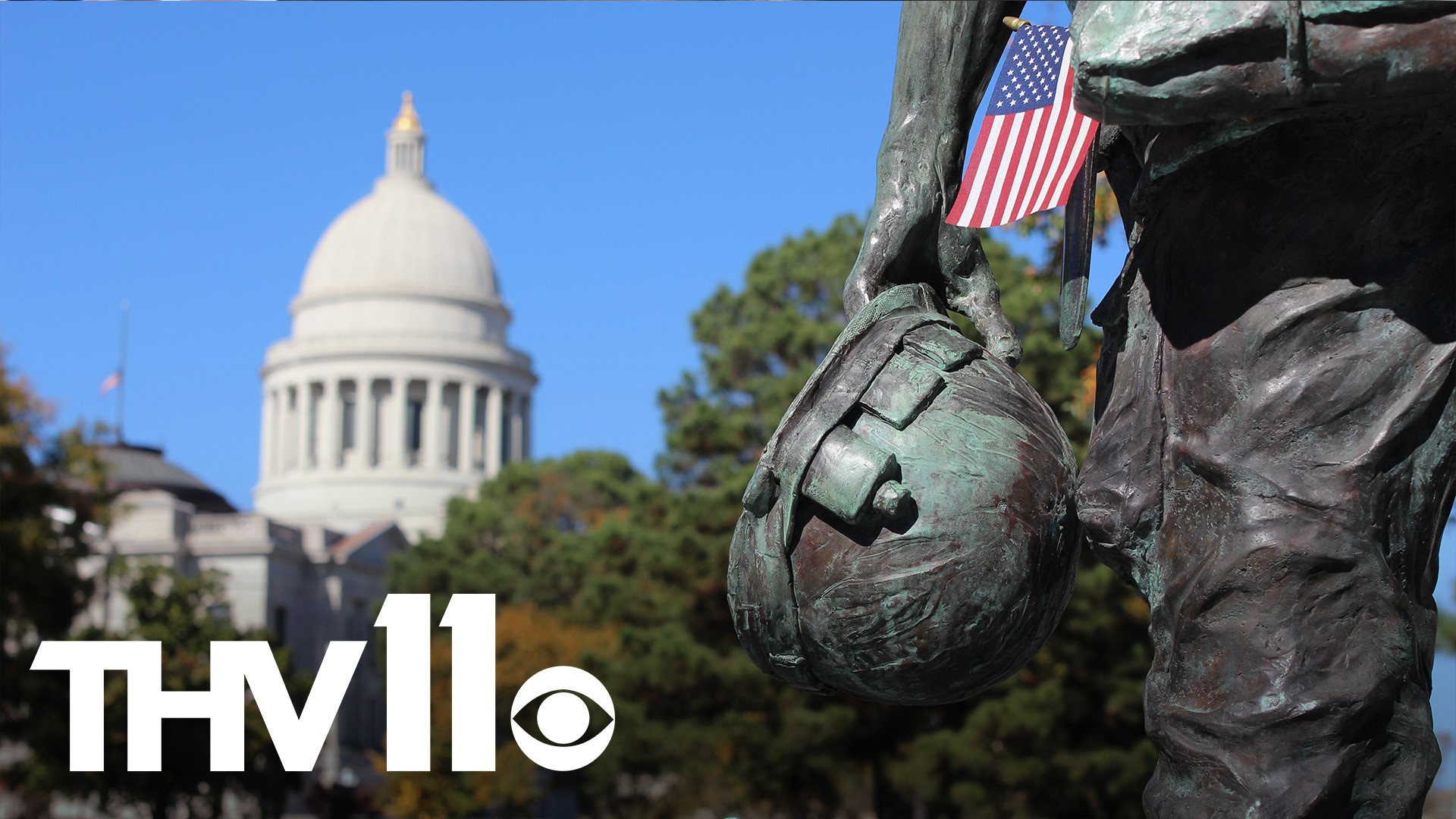HOT SPRINGS, Ark — With suicide rates among veterans stuck at an elevated level despite several years of intense focus, military and mental health experts have been studying how non-veterans can help and say we need to act now - beyond Veterans Day because the pandemic threatens to make the crisis worse.
"I think veterans suicide is the quiet pandemic that has been going on for three decades in this nation. We've got to continue to engage," said retired Marine Col. Michael Hudson, who for 30 years engaged enemies on the battlefield, but now sees engagement as the key to helping at-risk veterans.
"So there is a significant amount of evidence and research out there that points to known triggers or drivers of suicide," he said.
The evidence says approximately 20 former service members will take their lives on a given day. The Dept. of Veterans Affairs and the Centers for Disease Control landed that rate within the last 10 years, but they also found that about 14 of the people who die were not being cared for by the VA.
Col. Hudson and others don't blame the federal agency for that rate and instead, point to the way vets cope with life outside the military.
"Veterans become disconnected from the team, from the organization. And actually that starts day one," Col. Hudson said. "When they leave the [Dept. of Defense] or the National Guard, they leave behind that team, that buddy, that virtual wingman."
This threatens to get worse as the coronavirus drives more people into isolation. It deepens a cycle that many veterans won't readily try to break, leaving others to have to break it for them.
"If it's on a veteran to move to you, either through a phone call or a knock on the door, we're not going to get there," Col. Hudson said.
Hudson is now vice president of government solutions for ClearForce, a Virginia-based consulting company that advises businesses and institutions on security and efficient human resources. It's in that role that he tells clients and their employees to take the first step toward helping veterans in their workforce.
"If you have veterans in your orbit, connect in. If you have them on your payroll, check in on what's going on," he said. "Days like today are great. Say 'Hey, it's Veterans Day. Thanks for your service, and by the way, how you doing?.'"
But Col. Hudson warns it has to start as a conversation and not a confrontation.
"It has to be more event based activity than calendar based," he said, urging employers and friends and family to harness the power of just maintaining a connection. "In some cases, just the fact that you reached out, that puts them in a different trajectory."

